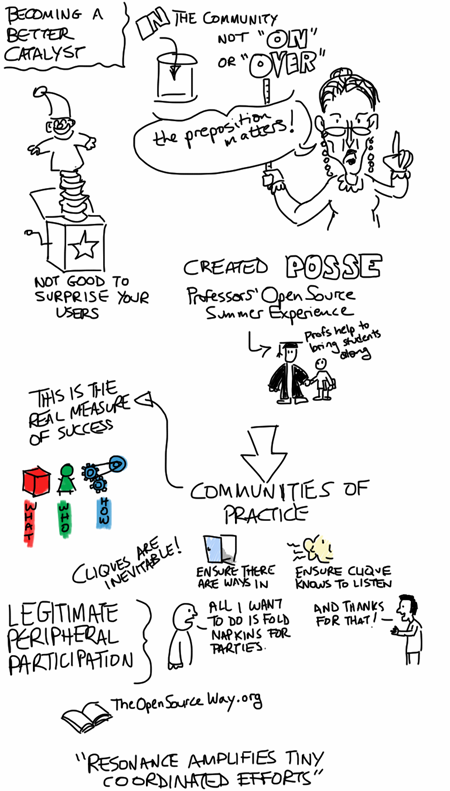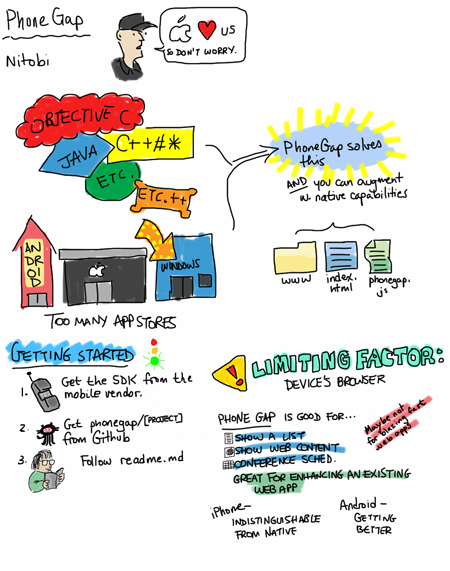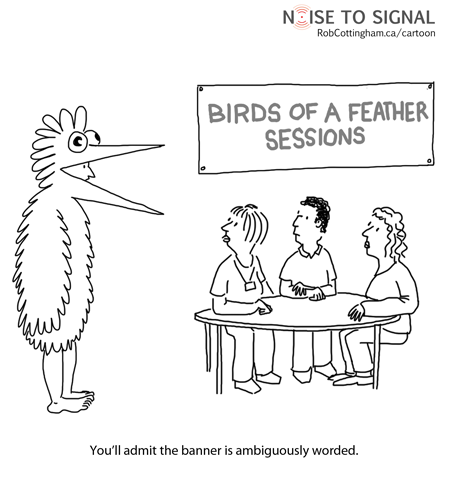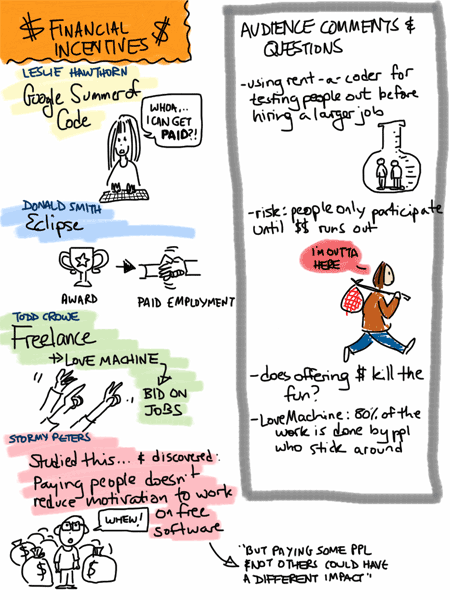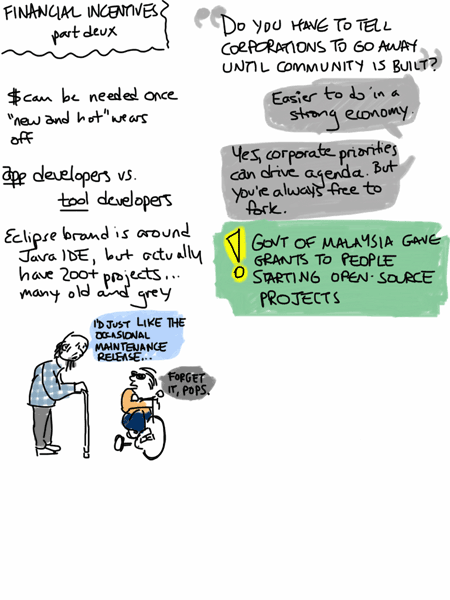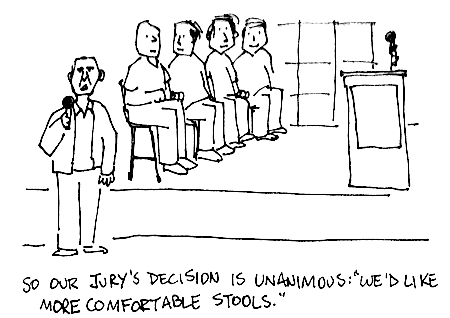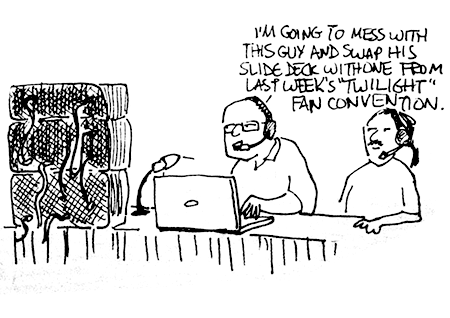The last full session I caught at OSCON was all about how Red Hat helped to nurture a committed, active developer community. Karsten Wade (@quaid) delivered an information-packed presentation – and pointed us to The Open Source Way, a wiki and downloadable guide to creating contributor communities. I’ll be looking forward to reading it.
Posts tagged oscon
Tim O’Reilly: O’Reilly Radar
OSCON has amazingly short keynote speeches. This one, by Tim O’Reilly, is just under 12 minutes long.
And yet he managed to inspire me far more than most 20-minute, half-hour or (god help us all) hour-long keynotes I’ve heard. Starting with a quotation from Harlan Ellison about diverging images of Christ in Rio, he challenged participants to use open-source not just to sell to the enterprise, but to build a better world. The challenges we face together, he argued, need the collaborative skills of the open-source community and the software they’re creating. (As you can imagine, that message resonated with me.)
That parallels the evolution of O’Reilly Media, which has changed from being a book publisher and event convenor to an organization with a strong focus on applying technology in ways that “help good futures to happen”.
His presentation ranged from food carts in Portland to the relief effort in Haiti. If you like the cartoon, you’ll love the movie:
PhoneGap in action
Brian Leroux, Filip Maj and company were in rare form at OSCON this morning, demoing PhoneGap, Nitobi‘s open-source mobile app development framework. PhoneGap solves two big problems for mobile developers: the number of platforms you need to develop on, and the number of app stores and distribution channels you face.
I was there, stylus in hand, to capture the broad strokes. What I didn’t get down here was the very cool experience of watching them create and launch an Android app in just a few minutes. (Thanks to a document camera, the audience watched the whole thing unfold on-screen.)
Flocking together
One of the things I’m digging* about OSCON is the community of open-source types itself, and how self-organization seems to happen just naturally. So of course birds-of-a-feather sessions abound.
Our session went very nicely, and now that it’s over, I get to actually exhale and enjoy the conference.
* N.B. – I am not old enough to use the word “digging” without feeling all ironical about it. Also, in not-unrelated news, anyone who calls me a “zoomer” is asking for trouble.
OSCON: Financial incentives for open-source development
The OSCON session on financial incentives in the open-source community was fascinating, partly because it goes to the heart of a lot of what we ask at Social Signal: what motivates people to participate?
The conversation made it clear that money can be a double-edged sword (note to self: do not actually use double-edged swords as money): encouraging some forms of participation, while potentially actually alienating other potential contributors.
The panelists were Leslie Hawthorn (Geek at Large), Donald Smith (The Eclipse Foundation), Todd Crowe (Todd Crowe Web Design & Development) and Stormy Peters (GNOME Foundation) – with moderation by Rob Lanphier (Wikimedia Foundation).
Cartoon-blogging from OSCON
Howdy, folks – I’m in Portland, OR at OSCON: O’Reilly Media’s annual gathering for the open-source community.
The convention itself starts tomorrow, but there have already been two days of tutorials and summits. I caught today’s cloud computing summit, which included a series of debates with a jury deciding such issues as whether open APIs prevent lock-in, whether we need standards in The Cloud, and whether the tarsier is a cute mascot or the cutest mascot.
One little touch that I love: the ribbons you can add to your badge. With most conventions, that’s fully in the control of the organizers: you get a ribbon that says “Sponsor” or “Speaker” or “VIP” if and only if you merit it. At OSCON, you get your choice of everything from “Database Doctor” to “We’re Hiring”… or a blank ribbon and a Sharpie.
There’s no question, though, that this conference’s main target audience is people whose tech chops exceed mine by a light year or so. That’s great – I like to feel challenged, and there’s no question most of the sessions I’m attending will do just that. And that makes me especially delighted that Alex and I will be presenting tomorrow on how we’ve been taking Social Signal’s business processes open, and the surprises, pitfalls and windfalls that we’ve encountered.
More coming tomorrow.

